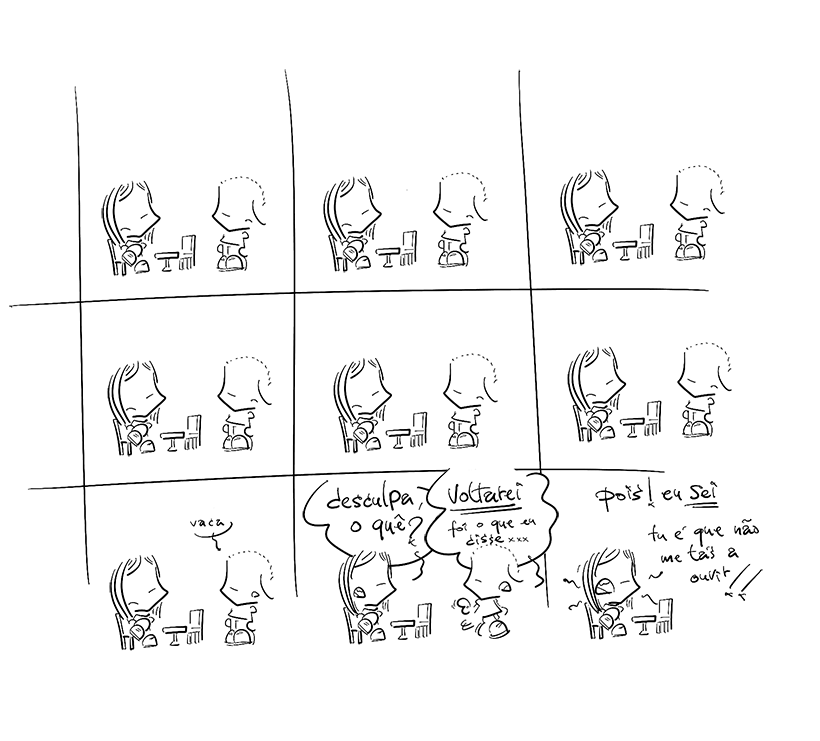20 a 20
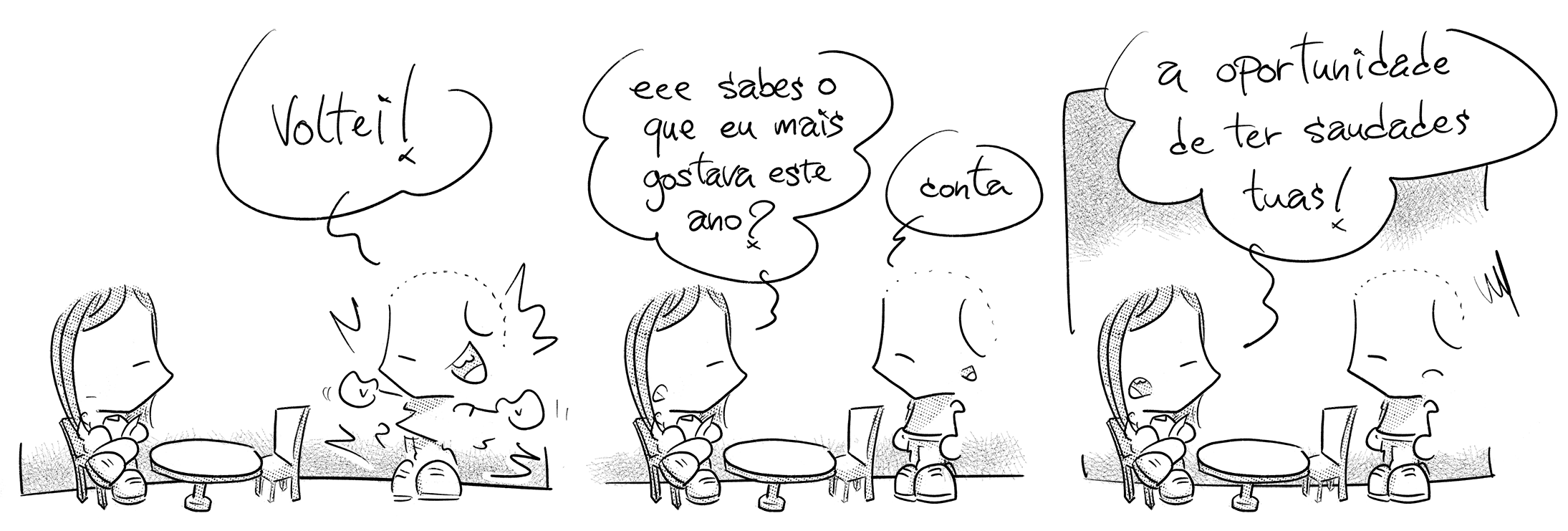
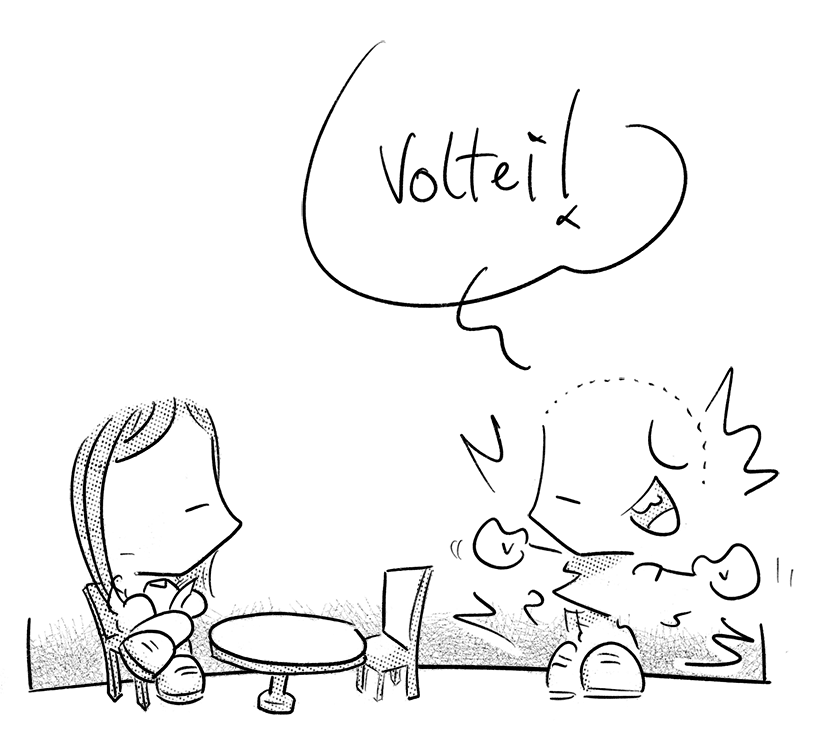
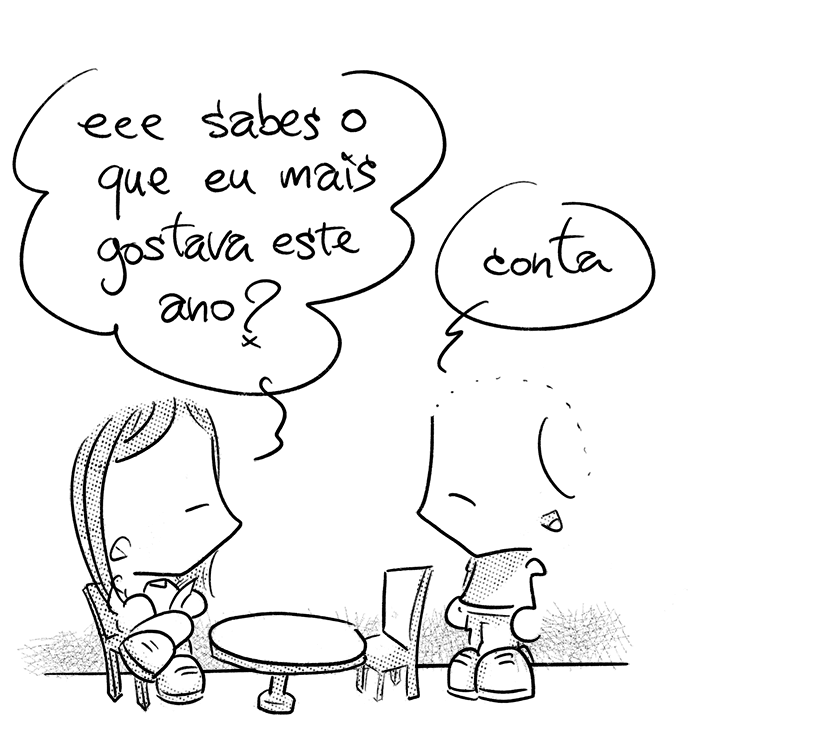
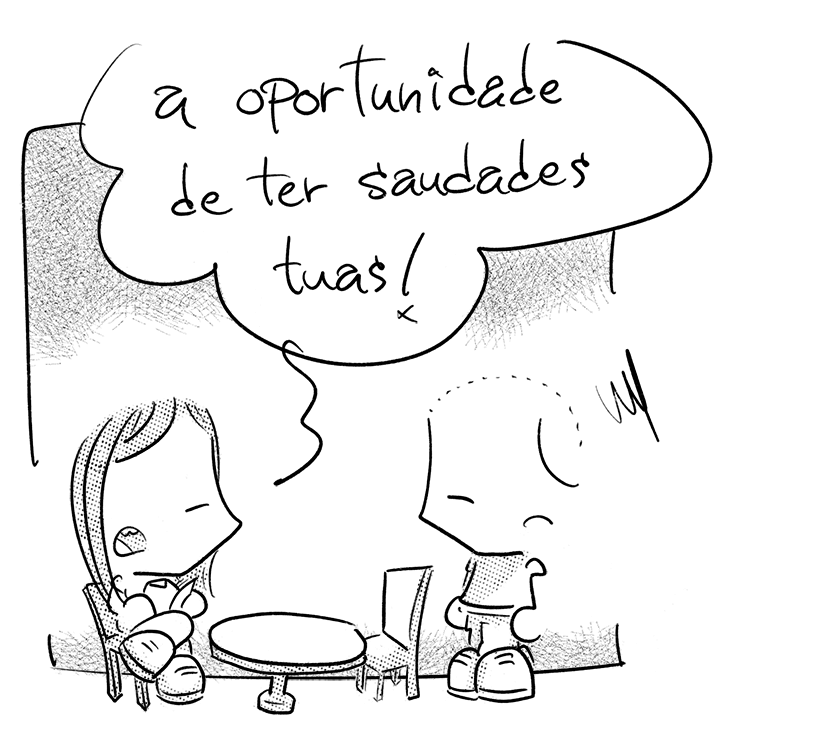
De recomeços e como neles entramos, tentemos arranque em tons de optimismo-quasi-histerismo na frente bedéfila:
We begin a whole new decade and I’m as excited as any of you! I feel that we have no time to lose to own this new emerging era. As for the world of comics and graphic novels, I direct your attention to a new leader in all things beautiful and unusual, the publisher, Beehive Books.
in "Comics in 2020: BEEHIVE BOOKS" 3 jan 2020
Um bom ano para essa editora que "ended the year with a lot more trophies, statues, plaques, clippings, plaudits and honors than we began it with", dedicada a formatos especiais do livro impresso, como o "entirely implausible experimental briefcase-housed ephermeral facsimile of Bram Stoker’s Dracula" ou "giant, deluxe, painstakingly researched monographs" de vários master artists, com promessas de mais e melhor por vir:
Next year we want to push even further in the direction of our more elaborate and ambitious projects. Bizarre formats, profuse box sets, paper sculptures, printed art objects, limited edition handmade artist books… Our ambition is to build paper worlds into which our readers can disappear. Refuge from the quick-and-dirty disposability of an increasingly digital and mass-manufactured world.
in "Comics in 2020: BEEHIVE BOOKS" 3 jan 2020
...mas estaríamos a sair de character se começássemos ano novo nessa nota. Seguimos deixa ao refúgio necessário, e segue-se um digest de várias frentes para arranque de hostilidades: politics com comics nos media com recurso à tech, onde tudo se mistura e devolve em cultura. Mentíamos se disséssemos que estamos nisto pelo "work of quality; work that advances the comics medium; and work that speaks to the current state of comics" (*) Evitando as habituais tendências 'tugas que caem no "promotional book of commercial artists" ou o "overly self-indulgent exploration of experimental work", vocês sabem quem são. — mesma origem, outro post... — o nosso bife é mesmo se a BD avança o state da humanidade em geral.
E no espírito deste nosso espaço do contra, o melhor resumo/intro que vos podemos deixar começa no contrário do entusiasmo anterior.
O que esperar de 2020? "If history is any guide, the outlook isn’t great." Regressamos aos padrões da história e não sacudam já para canto: é ciência.
These aren’t just guesses. They are predictions which uses dozens of case studies of civilisations over the past 5,000 years to look for mathematical patterns in human history.
in "History repeats itself. That’s bad news for the 2020s" 2 jan 2020
Chamam-lhe cliodynamics e entre outras variantes tem relevado algum sucesso em teorias demográfico-estrutural, "which explains common cycles of prosperity and decline".
Booms and busts. Demographic-structural theory looks at things like the economic and political strength of the state, the ages and wages of the population, and the size and wealth of the elite to diagnose a society’s health – and work out where it’s heading. Historically, some things we see today are bad signs: shrinking real wages, a growing gap between the richest and the poorest, rising numbers of wealthy and influential people who are becoming more competitive and factionalised.
in "History repeats itself. That’s bad news for the 2020s" 2 jan 2020
Com duas notas a que retomaremos em leituras cruzadas. Elites, tecnologias.
in "History repeats itself. That’s bad news for the 2020s" 2 jan 2020
- Elite competition makes crises worse
Historically, periods of strain and “elite overpopulation” are followed by a crisis (environmental or economic), which is in turn followed by years of sociopolitical instability and violence.- Technology to the rescue?
One thing that could reverse this cycle would be a major technological breakthrough. Innovation has temporarily warded off decline in the past.
Da decadência em progress — pun ao progressivo — salto à banda desenhada com os comics em novelos ao que os jacobinos chamaram de aesthetic gentrification.
As the appeal of elite culture decreases, cultural commodities including television, comic books, and science fiction have flourished. Indeed, their transformation bears the distinct characteristics of gentrification.
in "Graphic Novels Are Comic Books, But Gentrified" 12 dez 2019
Com uma das melhores definições de graphic novel já adiantadas — "combining fantasy with fine art, highbrow concepts with lowbrow caricature, graphic novels are neither literary novels, nor do they necessarily contain any graphic content" — e não sem algumas observações necessárias à leitura, segue-se mashup para tópico de conversa:
In the age of gentrification, a financial logic shapes cultural products just as much as the neighborhoods we live in.
The rise of graphic novels is a case of aesthetic gentrification — the transformation of comic books into a glossier product marked by high prices and middle-class values. Cultural products that are marketed to less affluent audiences generally command lower prices. Thus, science-fiction novels were traditionally sold as magazine stories or cheap paperbacks, often at newsstands alongside other pulp literature, including comic books. Publishers such as Pantheon and Drawn & Quarterly have since gone on exploit this artistic cachet through elaborate hardcover editions priced on par with expensive coffee-table books. The promotion of supposedly high-quality content constitutes an attempt to close this particular rent gap at a time when rentier capitalism has taken hold of contemporary culture.
With prices aimed at bourgeois audiences have come middle-class concerns. Scholars of the graphic novel tend to celebrate the graphic memoir, a subgenre that accords with their own middle-class values. Then again, the obsession with personal identity and a constitutive blindness to the issue of class have long been hallmarks of gentrification, whether in graphic novels or in the neighborhoods in which they are most often read.
in "Graphic Novels Are Comic Books, But Gentrified" 12 dez 2019
Como atrás, duas notas, os suspeitos do costume: artsy e quem os valida.
in "Graphic Novels Are Comic Books, But Gentrified" 12 dez 2019
- In contrast to their more working-class predecessors, artists often possess plenty of cultural capital that may be converted into economic profit with the right endurance and innovation. Where earlier comics creators toiled under quasi-industrial divisions of labor — visual artists, writers, letterers, and colorists worked under the supervision of powerful editors — today’s graphic novelists have accrued the status of brilliant auteurs.
- The term’s literary claims have finally secured institutional backing for an area of study that was once taken about as seriously as comics themselves. Today, academic journals and professional associations devoted to comics and graphic novels are founded with increasing regularity. Expertise in graphic novels may even secure that hallowed and, increasingly elusive, aim of the humanities scholar — a tenure-track job.
Banda desenhada, artistas, académicos, junta-se-lhes o crítico e estamos especialmente animados com a anterior sugestão de um novo espaço (afinal, gentrificação né?) dedicado ao tema, o ano-e-mês arranca com o abrir de portas do SOLRAD:
While we admit that we don’t know what the future holds, our goal is steadfast; to serve this community and seek its betterment. SOLRAD, first and foremost, aims to provide a new platform for comics criticism and journalism, one where contributors are paid well for their efforts. We feel that the resources we’ve been given are best used to directly compensate creators and critics, not editors or publishers.
in "Welcome to SOLRAD!" 1 jan 2020
Notaram como os critics estão no grupo dos criadores, versus os outros low lifes? Anyhooos, no espírito de missão do falecido Tom Spurgeon, "SOLRAD is largely a volunteer effort from a collective of experienced comics critics", entre os quais Rob Clough e Ryan Carey de quem temos despropositado vários excertos ao longo dos anos, ou um Alex Hoffman de quem (ex)citámos dezembros idos passagens a propósito de uma obra de Francisco Sousa Lobo.
One of the questions that Tom Spurgeon used to ask was, “Can we do better?” We think that the answer is yes. And we hope that you feel the same way too.
in "Welcome to SOLRAD!" 1 jan 2020
OS POSITIVOS: estamos nisto porque melhor é desejável. Esperemos que vcs assim o pensem também. Recomendamos a visita, de agenda deste primeiro janeiro é generosa com previews exclusivos online, podcasts e debates diversos que o poderão tornar num The Hooded Utilitarian para novas gerações, um top 20 de BD da década justificado, mesas redondas, e uma semana dedicada ao horror seguida de uma outra "all about memoir", porque, autobiografias! choque!, "digging deeper and from diverse perspectives seldom seen in years past".
Last e least este ano fizemos gazeta (ah!) ao jornalismo e ignorámos as habituais 2017 revisões 2018 da NiemanLab, mas esta consegue registo:
I read plenty of newsletters, especially in the case of the personal and quirky, and the less overtly news-pegged. I scroll through the archives of newsletters on the web and read several editions at a time. It’s great. It’s like reading blogs. Newsletters seem to have circled around from being the new blogs to being like blogs (but with posts that are emailed to readers).
It’s been long enough now that people look back on blogging fondly, but the next generation of blogs will be shaped around the habits and conventions of today’s internet. I’d expect new blogs to step in the same ambiguous territory as newsletters have — a venue for material where not everyone is looking, but privacy is neither airtight nor expected. Blogs offer the potential to broadcast, but not too broadly. We might even see a breakdown where newsletters begin to focus more on individual personal stories and daily digests, while blogs will fill in the gaps of all that might be written about otherwise.
in "A return to blogs (finally? sort of?)" jan 2020
Diz que não! Anyhooos, porque tudo isto importa? Passe palavra ao Jacob, é "important to understand that more grassroots changes often preceded neoliberal policy measures". Igualmente, recordando:
In truth, a good deal of comics production throughout the twentieth century was instantly forgettable, frequently sexist, and sometimes outright racist. Yet, despite their shortcomings, serial comics often gave expression to working-class concerns: a dogged depiction of unequal and unending power struggles and an anarchic subversion of everyday life.
in "Graphic Novels Are Comic Books, But Gentrified" 12 dez 2019
Em suma, isso. Não o aceitem de nós, toma a mesma coisa mas pelo historiador francês que nos iluminou três variantes de direita lá por casa a propósito de outras revoluções. Tem aninhos mas o título serve propósitos, "Introdução à História do Nosso Tempo" 1974 :
 factores de ordem intelectual
factores de ordem intelectualOs factores de ordem intelectual e ideológica, o movimento das ideias do século XVIII, contribuíram muito para a génese da revolução. Na verdade, as teorias políticas não são apenas concebidas no silêncio de gabinetes por pensadores isolados, mas alimentam também os movimentos de opinião. No entanto, entre o conteúdo original e a difusão, as teorias alteram-se. É assim que o que é retido dos escritos de Voltaire ou de Montesquieu está consideravelmente afastado do que estes escreveram ou pensaram. Contudo, este conteúdo desnaturado, se não é intelectualmente dos mais ricos, é, historicamente, o que há de mais importante, de mais decisivo, sob o ponto de vista da história em movimento. Constitui-se assim no final do antigo regime uma espécie de vulgata que recorre a todos os filósofos e que é difundida muito para além do círculo dos leitores. De facto, com os leitores de Montesquieu e Rousseau ou os assinantes da Encyclopédie não haveria com que fazer uma revolução: a Encyclopédie não teve mais de 4000 ou 5000 subscritores, menos do que as nossas revistas de interesse geral. Mas seria um grande erro reduzir o papel histórico da Encyclopédie e esse simples número, pois importa ter em conta a difusão subterrânea que veicula as ideias e as faz penetrar por osmose em camadas mais amplas. Paralelamente aos escritos, existe também a virtude dos exemplos, o contributo de precedentes e das experiências.
René Rémond in "Introdução à História do Nosso Tempo" 1974
E para anotar esses exemplos e contribuir à experiência, continuaremos mais um ano. Dito isso, take away final com que inauguramos o ano na volta aos padrões repetidos:
We always massacre each other on the downward side of a cycle. Remember that fact as we embark on the pattern again in the 2020s, and you find yourself becoming blindingly angry while watching the news or reading what someone said on Twitter.
in "History repeats itself. That’s bad news for the 2020s" 2 jan 2020
